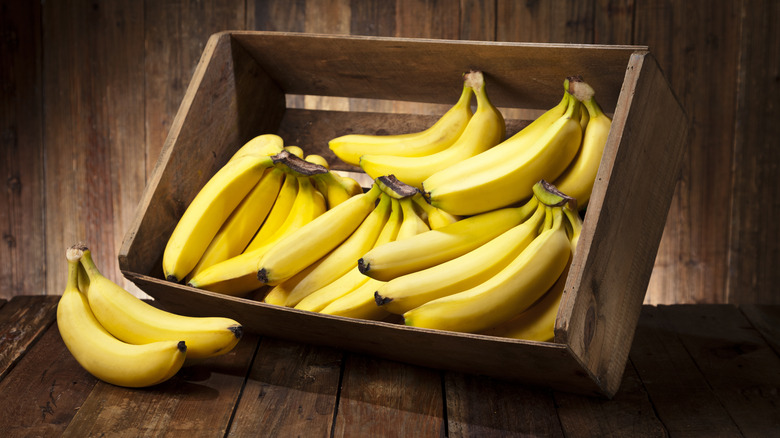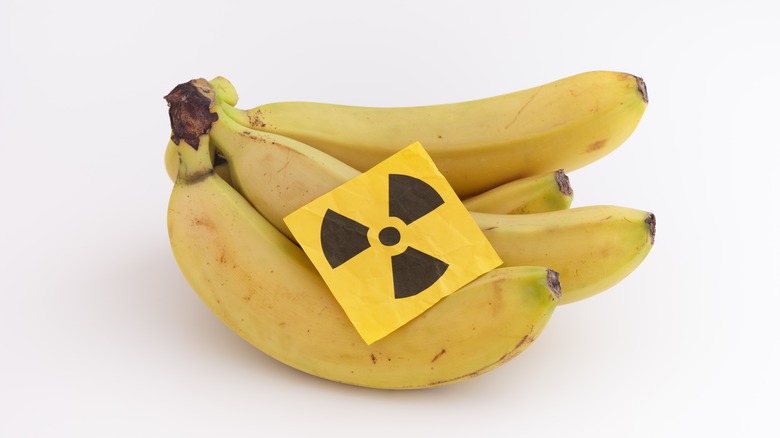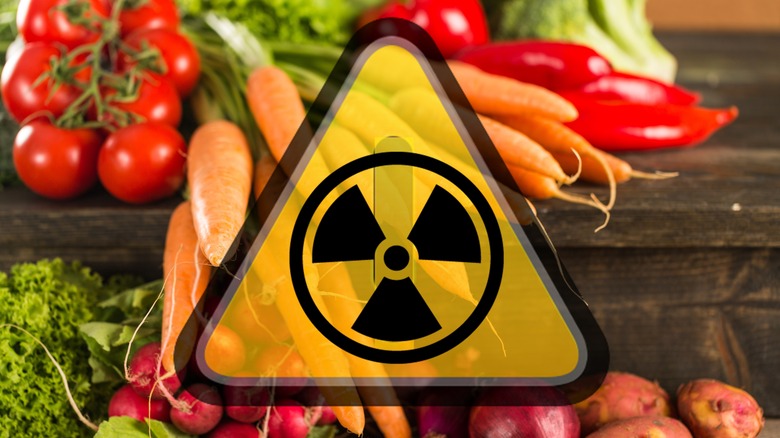Uh, What Do You Mean Bananas Are Radioactive?
The world's most consumed fruit (and there's a Guinness World Record to prove it) also happens to be radioactive. While eating bananas won't give you superpowers, the easily available, versatile fruit is full of nutrients, and one of those nutrients — potassium — contains the radioactive isotope K-40.
Radioactivity is not something one expects to find in their fruit bowl, but the fact is, it can be found in the most unexpected materials you may have lying around the house. False alarms have been triggered by the likes of kitty litter, ceramic objects, and, yes, bananas, too. So, just how much radiation does a banana hold? As it turns out, not much (thankfully!), and several other foods also contain small amounts of radioactivity. "We receive a small radiation dose from our diet every day," says Tony Colgan, head of the International Atomic Energy Agency's Radiation Protection Unit.
It's important to note that natural radiation found in food is distinct from food irradiation, the latter being a process of subjecting food to ionizing radiation to disinfect it. Since the food itself doesn't come into contact with radioactive material, the irradiation process does not raise radioactivity in food. Now, let's get to those radioactive bananas.
Exactly how radioactive are bananas?
All potassium contains trace amounts of the mildly radioactive isotope K-40 and the high levels of potassium found in bananas make them one of the foods with the highest radiation levels.
According to McGill University's Office for Science and Society, the K-40 in a banana with 450 milligrams of potassium will expose the consumer to about 0.01 millirem of radiation. To put that into context, the United States Environmental Protection Agency estimates that eating a hundred bananas subjects a person to a dose of radiation similar to the natural radiation they experience from the environment daily in the United States. Eat a thousand bananas and you will experience about 10 millirems of radiation — comparable to getting a chest X-ray. This is a significant amount, but it still only increases the risk of death by radiation by one in a million. So, following that probability, you'd have to eat close to a billion bananas to be subject to a fatal dose of radiation.
So, you can't possibly get a lethal dose from one sitting of eating bananas, but what about over time? Fortunately, our bodies regulate potassium levels through a process called potassium homeostasis, maintaining a constant level by absorbing it from food and getting rid of it through excretion. The bananas you consume are not creating a nuclear stockpile inside your body.
Why are some foods radioactive?
The world is made of elements (like carbon, iron, oxygen, silicon, and several others). Some of the atoms in these elements are unstable and release sub-atomic particles in the form of radiation. Radiation poisoning can cause nausea, organ damage, and death and occurs in rare cases when a person is subject to a large dose of radiation within a relatively short period. However, milder forms of radiation from materials around us and even from medical procedures like X-rays are not strong enough to cause radiation poisoning.
Foods naturally contain substances that may be mildly radioactive but can also pick up small amounts of radioactive elements from soil or water. Similarly, animals can pick up traces of radioactive elements from the plants and water they ingest. Depending on their composition, some foods can be more radioactive than others.
Bananas have higher levels of radioactivity due to their high potassium content. Brazil nuts, which contain potassium as well as a small amount of radium, are also noticeably radioactive, as are lima beans (also known as butter beans), potatoes, carrots, red meat, and even water. In fact, it has been noted that the most significant dose of radiation most people receive over their lifetimes is from natural sources like food, air, and water, making bananas just one of many radioactive materials we regularly ingest.


